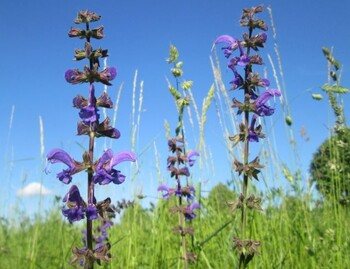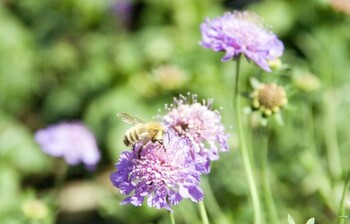There are many different types of backyards, and naturally everyone has a different taste or style. Fortunately, more and more green gardens are being created, or the existing garden is being given a lot more vegetation. Removing paving and adding greenery has become very popular in recent years, and that's a good thing. Another recurring theme is the natural garden. But exactly what is that? How do you create a natural garden? Here are a few handy tips to turn your backyard into a natural garden.
What does a natural garden mean
A natural garden is a garden where nature is the focus and there is a lot of variation in plants. Where birds fly, frogs have water to reproduce, all insects are welcome and above all, there is a lot of vegetation that really belongs in the place where you live. A natural garden is actually a lot easier to maintain because it doesn't have to be so 'tidy', which is the underlying idea behind the natural garden. It is beautiful in all seasons, plain or lush, just green or full of flowers. A natural garden is especially good for biodiversity.

How to create a natural garden
-
Make sure the plants and animals are the focus of the garden.
-
Create a natural pond and ensure there is some water flowing through it.
-
Create an insect hotel where critters can breed. This can be as simple as a pile of stones or a mound of leaves.
-
Create a place for the compost heap. Apart from the benefit of having your own organic compost, it is also a place where many animals can live and fungi can develop.
-
Choose many different types of plants. These can be trees, shrubs and low-lying plants.
-
Choose plants with different flowering times so that there are flowers in the garden from early spring to late autumn. Not only does this make the garden look beautiful, it also allows insects to find food at any time.
Which plants to use
A garden with the right plants is a garden that has been adapted to the type of soil and the amount of sunshine in the garden. In this way, you can take into account the indigenous plants also known as native plants. Plant a section of the garden with these native plants that grow in your vicinity. By doing so, you will contribute to a better biodiversity in your neighbourhood. Of course, it is no problem to combine them with exotic plants, because these plants also absorb water, provide shade in summer and provide a place for the little creatures to get their nectar.
What is an indigenous plant
There is a lot of talk about indigenous or native plants, and that you should fill your garden with them. But what is a native plant and what is it good for? These plants grow naturally in the Netherlands and specifically in the area where you live. Many of these plants are disappearing because people don't like them or find them too common and instead plant exotics. Exotic plants are plants from faraway countries that do not naturally grow in the Netherlands.

It is important that enough indigenous trees, shrubs and perennials grow in and around the garden to maintain the state of biodiversity. The animals that live in the Netherlands are also linked to these native plants. In fact, it is all one big cycle. If you take away one link, the plants, it all falls apart like a house of cards. We desperately need these animals, which in turn are sources of food or pollinators for others in this cycle.
Native plants
Native plants that are common in the Netherlands:
| Self-heal | Prunella vulgaris |
| Salad burnet | Sanguisorba minor |
| Wild columbine | Aquilegia vulgaris * |
| Foxglove | Digitalis purpurea |
| Yellow archangel | Lamium |
| Yarrow | Achillea millefolium |
| Water mint | Mentha aquatica |
| Meadow sage | Salvia pratensis* |
| Oregano | Origanum vulgare |
| Nettle-leaved bellflower | Campanula trachelium* |
| Cranesbill | Geranium* |
| Pincushion | Scabiosa* |
| Hemp-agrimony | Eupatorium cannabinum* |
| Pasqueflower | Pulsatilla vulgaris |
| Comfrey | Sympythum officinale |
| St. John's wort | Hypericum perforatum |
| Garden Speedwell | Veronica longifolia* |
| Bugle | Ajuga reptans* |
| | |
| |
* These perennials are for sale between January and May in the EU shop. Due to export regulations, we unforutnately don't ship perennials to the UK.